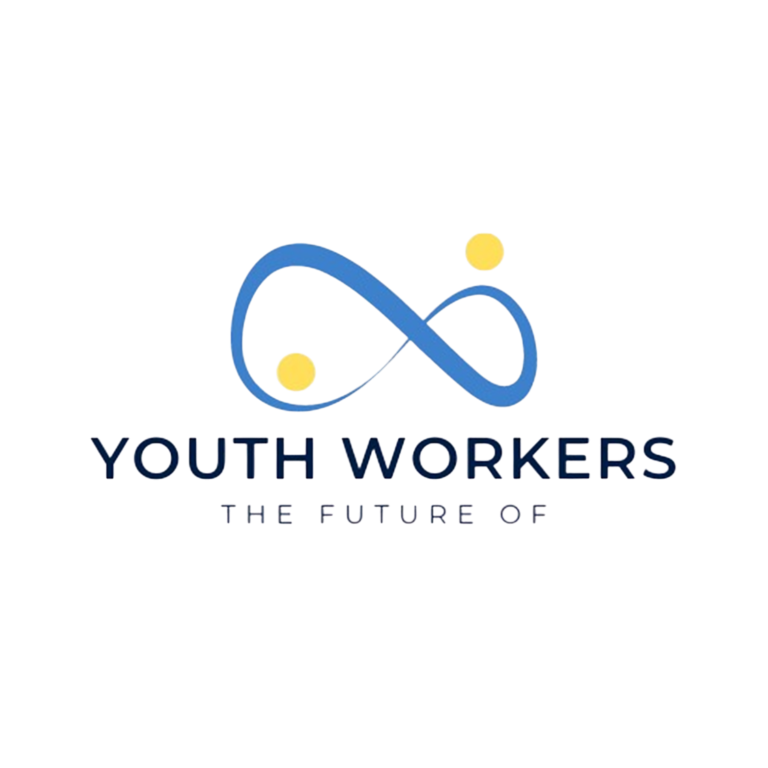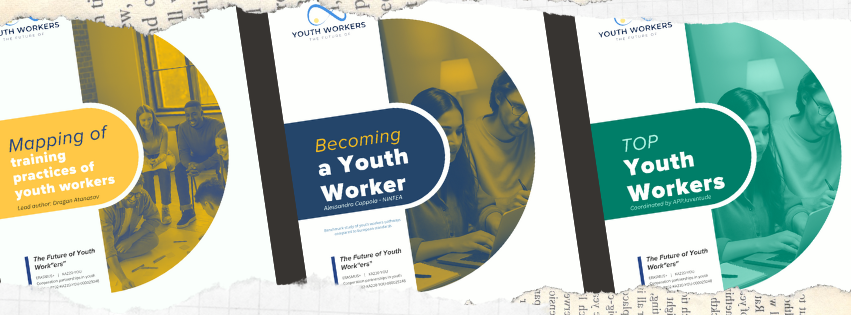Módulo 1 — Identidade, Ética & Qualidade
Funções, limites profissionais, salvaguarda e padrões de qualidade.
Outputs: Código de Ética, Checklist de Qualidade, PDP.

Projeto Europeu de Cooperação Transnacional – Erasmus+ KA220
O “The Future of Youth Work’ers” é um projeto europeu que reforça a qualidade, a inovação e o reconhecimento do Trabalho com os Jovens na Europa, com enfoque na qualificação e valorização dos/as profissionais de juventude.
Coordenado pela APPJuventude, reúne organizações de sete países (Portugal, Países Baixos, Macedónia do Norte, Grécia, Sérvia, Estónia e Itália) para mapear, comparar e fortalecer percursos formativos e modelos de reconhecimento dos/as Youth Workers.
O consórcio reuniu sete organizações de referência para produzir diagnóstico comparado, estudo de benchmarking e um modelo formativo europeu.

O projeto ambiciona impacto duradouro: geração de conhecimento, inspiração para políticas públicas e consolidação da identidade europeia dos/as profissionais de juventude. A APPJuventude continuará o legado com parceiros e redes europeias.

Consulta a ficha oficial do projeto 2021-1-PT02-KA220-YOU-000029248 no portal Erasmus+. Informação verificada e publicada pela Comissão Europeia.
Última verificação:
Fonte: Erasmus+ (Comissão Europeia)
* O selo “verificado” indica que este link aponta para a página oficial do projeto na Comissão Europeia.
Em muitos países europeus, o Trabalho com os Jovens carece de reconhecimento formal, percursos de carreira e formação consistente. O TOP Youth Workers responde com um programa europeu, prático e modular, para elevar a qualidade, a inovação e o reconhecimento.
O TOP Youth Workers propõe um percurso modular flexível, alinhado com a EU Youth Strategy, o Bonn Process, o ETS & Youthpass e a Carta Europe Goes Local. A metodologia assenta em Educação Não Formal, Design Thinking e aprendizagem por projetos.
Funções, limites profissionais, salvaguarda e padrões de qualidade.
Outputs: Código de Ética, Checklist de Qualidade, PDP.
EU Youth Strategy, Bonn Process e ligação prática–política.
Outputs: Policy Canvas Local, Nota de Advocacy, Mapa de Stakeholders.
Empatia → Definir → Idear → Prototipar → Testar, com jovens.
Outputs: Problema-alvo, Protótipo, Roadmap, Pitch.
Processos participativos, acessibilidade e resolução de conflitos.
Outputs: Plano de Participação, Checklist de Acessibilidade, Kit de Mediação.
Ferramentas digitais, dados mínimos viáveis e storytelling.
Outputs: Mini Digital Toolbox, Impact Story, Dashboard, Plano de Comunicação.
Youthpass, advocacy, financiamento e continuidade.
Outputs: Youthpass, Plano de Advocacy, Mapa de Financiamento, Estratégia de Sustentabilidade.
Ritmo intensivo, outputs imediatos, equipa coesa.
Aprendizagem + aplicação no terreno com mentoria.
Sessões online curtas + workshops presenciais (sprint, role-plays, fecho).
